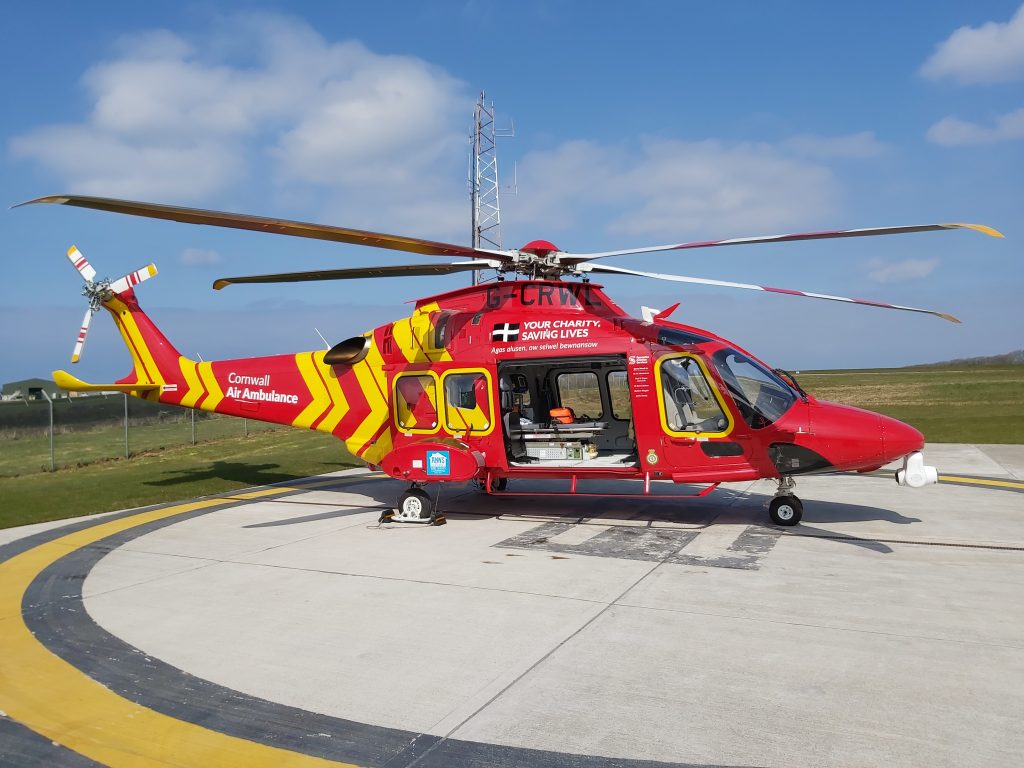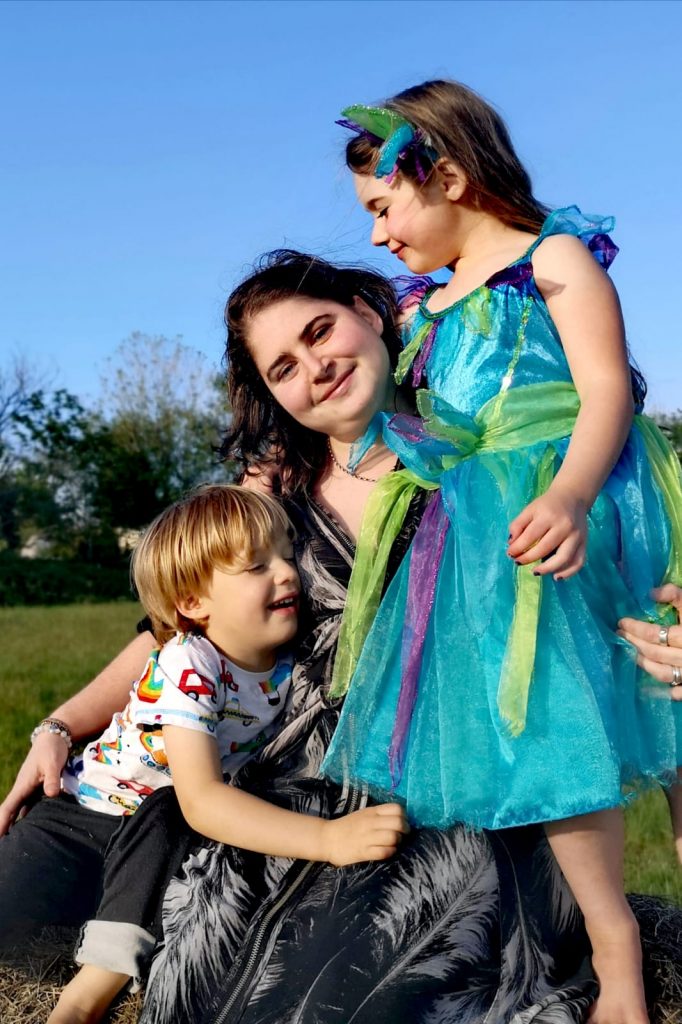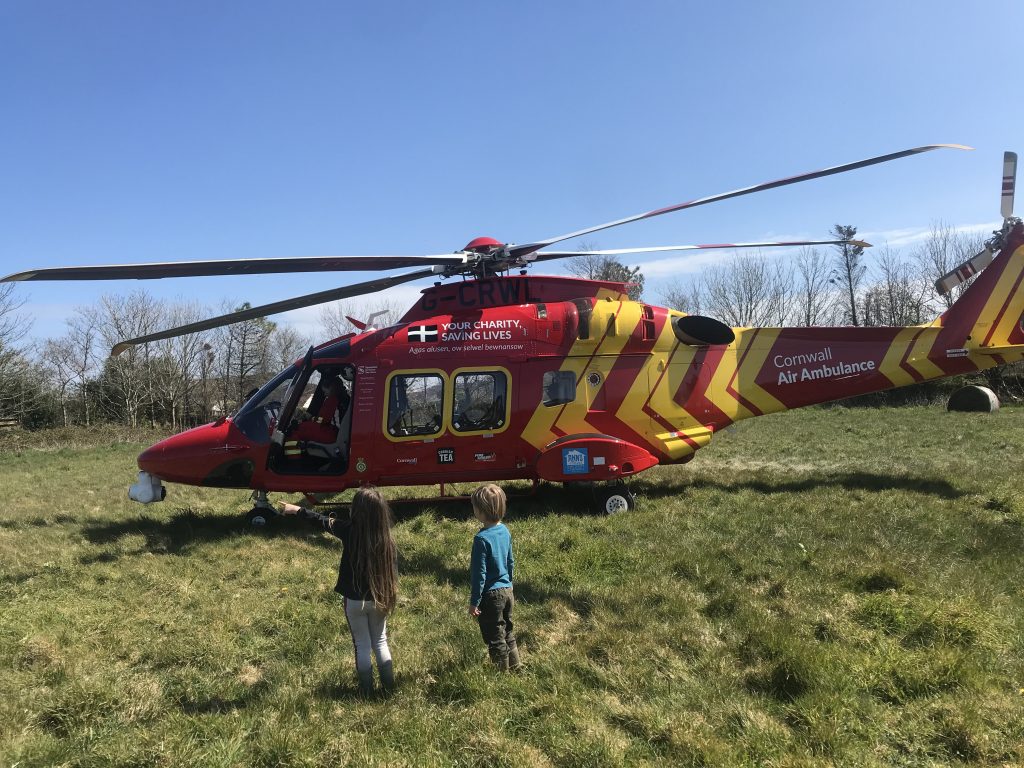1 June 2020
Cornwall Air Ambulance is appealing for urgent support to help safeguard the future of the helicopter service amid a significant funding shortfall due to the Coronavirus pandemic.
With the closure of charity shops, the cancellation of community fundraising events and the loss of income from the tourism sector, the lifesaving charity is predicting an annual loss of income of around £1.5 million.
The charity says the unprecedented shortfall in income could significantly impact the service it provides across the county. Every year the helicopter responds to over 700 emergency calls for help and is on-scene at an incident in an average of just 12 minutes. Combined with the charity’s nightly critical care car cover, the crew were tasked to a total of 1,144 missions in 2019. It costs more than £4.5 million a year to run the lifesaving charity and the £1.5 million shortfall could have consequences on the service it provides.
“The aircrew have worked hard to keep flying during the pandemic, and we have adapted our ways of working and the protective measures in the helicopter. With your help we will be able to continue to bring the level of care we currently do to as many seriously sick and injured patients as possible in the future.”
The charity has welcomed the recent announcement of a government grant for air ambulance charities; however it does not yet have confirmation of how much Cornwall will receive. With 21 air ambulance charities UK-wide, there is a risk that the support will paper over the cracks of the cost of trying to keep the lifesaving service going during Covid-19.
Paula Martin, Chief Executive of Cornwall Air Ambulance, said: “Cornwall Air Ambulance is an independent charity, and although we have NHS paramedics in the team, the charity is not eligible for the millions of pounds raised for the NHS. Cornwall Air Ambulance is not immune to the effects of Coronavirus. This is about a stitch in time saving nine. The more people who can step in now, take action and support the lifesaving work of the charity, the greater the chances are that we can preserve the maximum service levels and reach the patients who need us most in their golden hour of need. This is an urgent appeal to give direct to Cornwall Air Ambulance, to keep the new helicopter flying and saving lives. Future lives depend on the support of the amazing people of Cornwall.”
You can help the charity continue its lifesaving work by making a regular donation, visit www.cornwallairambulancetrust.org/donate

Case study
Mum thanks paramedics who saved her life twice in a month
A mum of two who suffers from a severe form of asthma has thanked the paramedics that saved her life twice in the last month.
Carrie Grandison, 30, first had an asthma attack at her home near St Austell on Wednesday 8 April and needed advanced medical care.

Cornwall Air Ambulance was tasked and pilot Liv Milles landed in a field next to the family home- a journey that took just six minutes from the Newquay base.
Due to the restrictions with Covid-19, as a respiratory patient Carrie could not be transferred to hospital in the helicopter. Instead, the charity’s critical care paramedics Pete Storer and Martin Bunt, worked with colleagues from SWASFT to accompany her to hospital by road.
Carrie said: “Although I didn’t go in the helicopter, what the air ambulance paramedics can provide is a higher level of care and medicines. Having Pete and Martin with me meant that my treatment could get started on route to hospital. Their quick and pre-emptive treatment made all the difference; in my situation minutes can mean the difference between life and death. I’m certain the treatment they started and their calm expertise saved my life.”

Carrie was taken to Royal Cornwall Hospital and transferred to the Intensive Care Unit for further treatment. On her discharge from hospital, Carrie had to spend seven days in isolation from her husband Shane and two children Isla,6, and Ted, 4.
Just a couple of weeks later, critical care paramedics from Cornwall Air Ambulance came to Carrie’s aid again, when she suffered another life-threatening attack on Saturday 2 May.
Carrie said: “I cannot thank the critical care team enough for what they’ve done for me. I couldn’t believe it when I found out Cornwall Air Ambulance relies solely on charitable donations. It is such a vital service, particularly here in Cornwall. Our family are planning to raise money for the charity to make sure they can keep saving lives.”